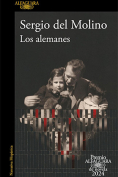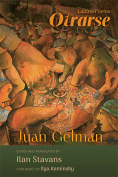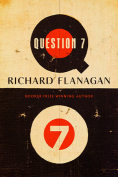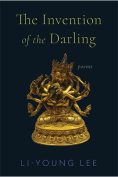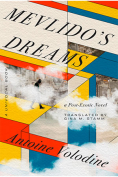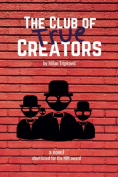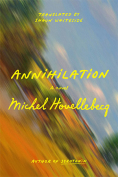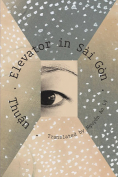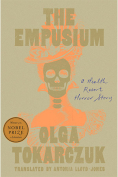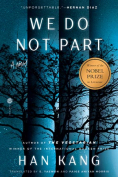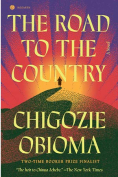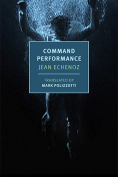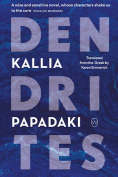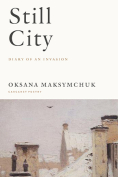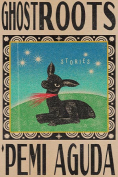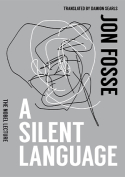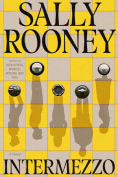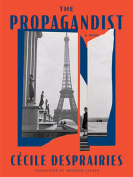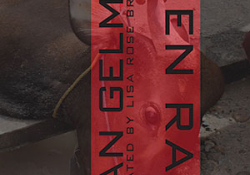Otrarse: Ladino Poems by Juan Gelman
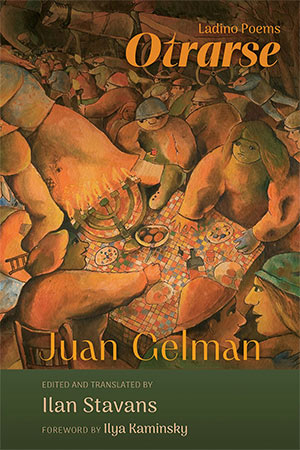 Albuquerque. University of New Mexico Press. 2024. 256 pages.
Albuquerque. University of New Mexico Press. 2024. 256 pages.
Ilan Stavans’s selections from seven of Juan Gelman’s collections, originally published between 1982 and 2001, showcase Gelman’s ephemeral and situated voice. This ambivalence is grounded in Gelman’s exile from his native Argentina, his dialogues with medieval and early modern Jewish and converso poets, and his commitment to learning Ladino, a precarious form of Old Spanish spoken by Sephardic Jews.
Originally published in 1994, Dibaxu (Underneath) is the resulting bilingual collection of poems in Ladino and Spanish. Exile, Jewish literary tradition, and a nearly extinct language combine in Gelman’s poetry to trace a certain idea of home; one that recognizes home’s essential importance, its frequent elusiveness, and the dangers of fixing it to a given place or way of being. The lines in Ladino that conclude the seventh poem in Dibaxu give readers a sense of the beautiful musicality and delicate approach to the poetic voice’s home that graces Otrarse: “si dispartara la yuvia / di un páxaru / qui aspira al mar / nil mar /” (the rain woke up / from a bird / awaiting the sea / in the sea /). Flowing and flight coincide in this image with the slight disjuncture of place expressed by the fact that the site of waiting is the same as that which is awaited.
A disjuncture between poet and voice also structures Otrarse, as indicated by the title’s challenge “to other oneself.” The idiosyncratic use of slashes at the end of a poem, as in the lines cited above and in almost all of the poems in Stavans’s edited collection, is an example of how Gelman communicates the slightly imperfect overlap between one voice and another. The final slash suggests incompleteness and a distinction between the last word of an utterance and what still may be to come. What comes next does not have to be written by the same poet who wrote the slash. It could be an invitation to read one of Gelman’s historical interlocutors, like Saint Teresa of Ávila or Yehuda Halevi, from, respectively, Quotes, originally published in 1982, and Com/positions, from 1986, or Gelman’s heteronym, Eliezer ben Jonon, who also appears in Com/positions. What comes next could also be from Gelman’s mother, with whom his poetic voice forms an inextricable edifice in Letter to My Mother, from 1989.
In many of his poems, Gelman’s voice is light, fragile, and fleeting but also rooted, this apparent contradiction an analogy of his oeuvre’s incursions into the multiple poetic and linguistic traditions and trajectories that span the volumes represented in Otrarse. Gelman’s rhythm intensifies the occasional uncertainty of the voice’s movements, as in the stuttering cadence in these lines from Com/positions: “en el mundo sólo tengo esta hora // este ahora que soy /” (in the world this hour alone is mine // this now that I am /). “Esta hora” and “este ahora” echo each other while shifting from a possession to a subject position. The image in the poem cited above of awaiting the sea from inside the sea is here like the subject conditioned by the hour he owns. Likewise conditioned is the voice, at once possessed and grounded in a concrete experience as well as belonging to something else, but never only one or the other.
Otrarse invites its readers to follow its title’s instruction and reassures them that they will do so within the embrace of Gelman’s call to speak beyond the illusory conclusions of poetry and life.
Ryan Long
University of Maryland

